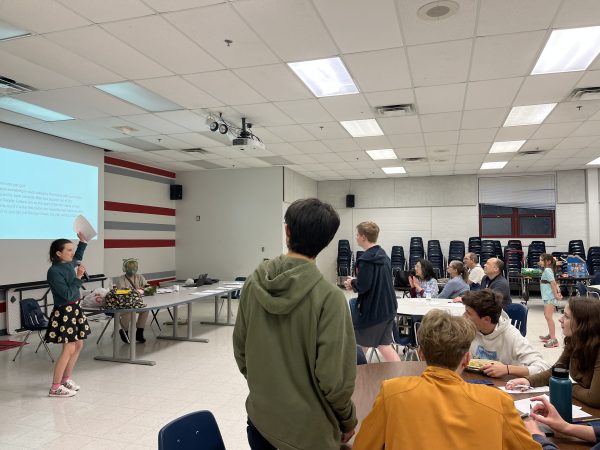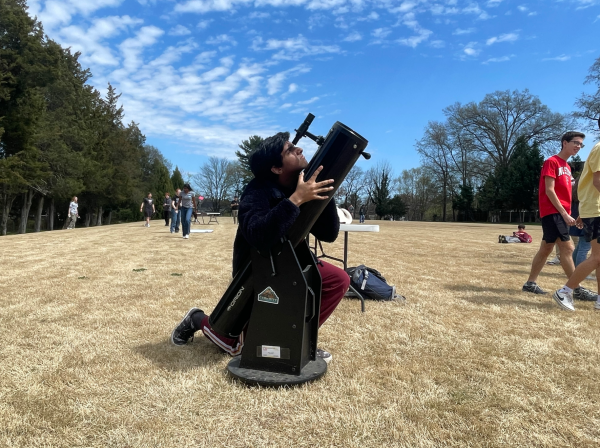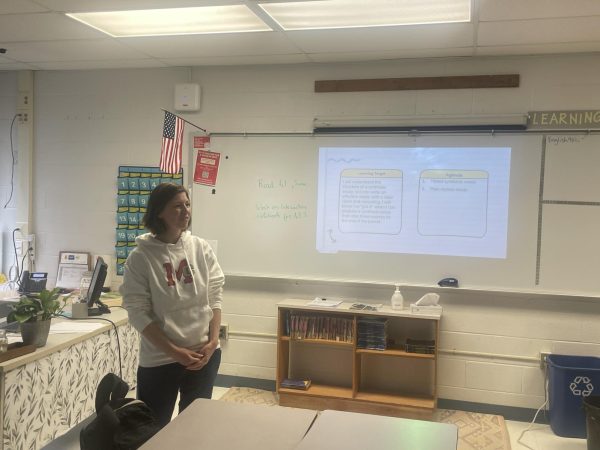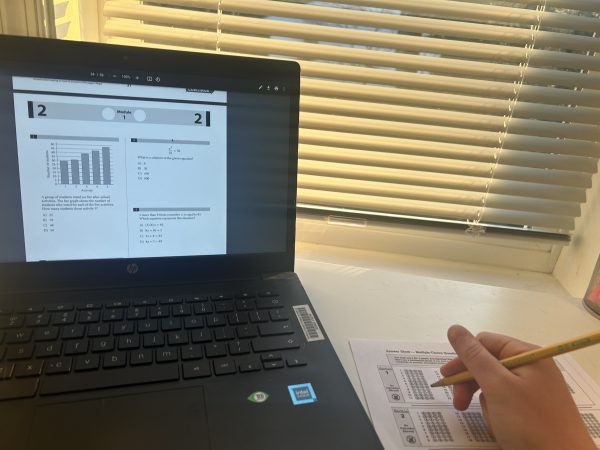FCPS revises grading policies
New rules permit retakes and acceptance of late work
November 22, 2016
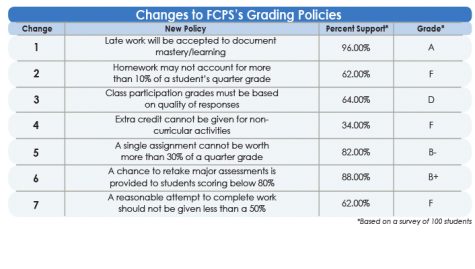
A new school year has brought changes in FCPS’s grading policies. The revisions are meant to better reflect grading trends across the nation, with a goal of reducing the impact of a single low score on a student’s average grade.
“[There was a] need to have a more standard policy across the county,” said Jane Strauss, Dranesville Representative for the Fairfax County School Board.
Four committees of principals, teachers, parents and students across Fairfax County crafted the new policies. The committees met over two years to discuss these changes.
“We want to give students more than one opportunity to show mastery [and] just want to do what’s best for kids,” said Sara Wheeler, McLean’s assessment coach, who was a member of the committee of teachers who discussed grading changes. “The policies were intended to be loose enough that each course could tailor the policies to meet their own needs.”
As part of the revisions to the grading policy, students will have the opportunity to retake assessments in which they score below an 80 percent.
They will also have the chance to turn in late work at the end of the quarter and receive a maximum score of 50 percent for the assignment if they make a reasonable attempt to complete the work.
When I heard about this policy, I was depressed for a few days [and] I felt horrified and personally offended.
— History teacher Dylan Wedan
Some students hope the new retake policy will help improve their grades and allow for better mastery of the content.
“I think the retake policy benefits the students [because] they will study more and actually end up understanding all [of] the course material,” junior Caroline Brunner said.
Other students appreciate the opportunity to make up for a bad test day.
“It allows a chance to salvage your grade,” junior Ryan Murn said. “It’s giving that person a chance to still be able to catch up.”
Some teachers also support the new retake policy.
“We want you to learn the material, and we’re willing to give you an extra chance to do it,” math teacher Crissie Ricketts said.
Ricketts has offered retakes on a case-by-case basis in the past, and also offers test corrections to her math classes for up to half credit back.
“I’m obviously pro giving these kids a second chance. It’s all about what you can learn. If you can demonstrate learning next month versus today, that’s fine with me,” Ricketts said. “I’m really hopeful that it takes some of those kids that struggle through some tests and it helps them boost their grade.”
Other teachers, however, are opposed to the retake policy due to the burden it creates.
“For history in particular, it’s costly. Creating good test questions, as well as reading and grading student written work is a matter of scores of work hours,” history teacher Dylan Wedan said. “When I heard about this policy, I was depressed for a few days [and] I felt horrified and personally offended.”
Wedan, however, does still sympathize with students.
“Occasionally, [low scores happen] because something came up, in which case your teacher is bad if they don’t make an allowance for that, or you didn’t put in the work. Most times it’s that second,” Wedan said.
Many students are also against the retake policy.
“The retake policies are unnecessary because you don’t get retakes in life and students shouldn’t have that opportunity [to retake a test],” sophomore Mara Kessler said.
Despite differing opinions on these changes, FCPS plans to see how the new policies will effect students.
“We will have to see if [the committee] found the right approach [and] I am sure there will be more feedback at the end of the school year as to whether [the policies] meet everyone’s needs,” Strauss said.




